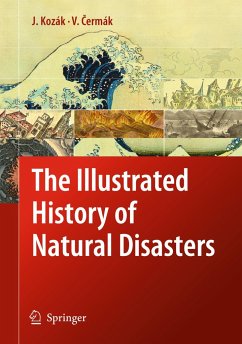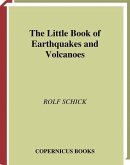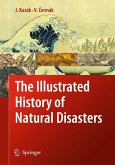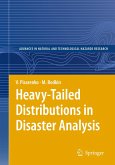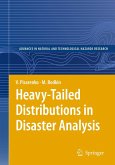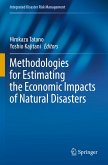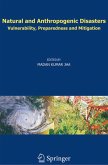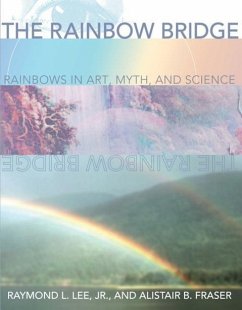This book tells the story of the Earth itself, explaining the interplay of its gradual geologi- levolution, presented as a generally slow and safe process, with the sudden manifestations of natural hazards, which involve disasters that affect the environment and lead to huge material damage and human losses. The natural forces at play, whether they are violent explosions ofvolcanic eruptions or almost imperceptible deformations of subsurface rock strata, nally- sulting in devastating earthquakes, all control the existence and destiny of a certain part of the global population. The development of man's existence down through history has depended upon his understanding of the world in which he lives, and upon his ability to turn to his own best use the materials that were there for the taking. However, he has had not only to furnish himself with food, water, building materials, and energy to protect himself against occasional natural adversities. Protecting himself from them meant comprehending their causes, and the essential core of his understanding was in recording and depicting them. This book is written for anyone interested in the Earth in general, and in natural disasters in particular, presenting a unique collection of historical illustrations of volcanic eruptions and earthquake events and their repercussions. The book represents a golden mean between sci- ti c and popular works.
From the reviews:
"The Illustrated History of Natural Disasters, by geophysicists Jan Kozak and Vladimir Cermak, is a timely collection of pictorial records of earthquakes, volcanoes and tsunamis from antiquity to modern times. ... This events is well documented in the book which includes stories ... . helps us to understand that catastrophes are part of the history of humanity while reminding us of the vulnerability of the human species in the face of natures wrath." (Alexis Drahos, Nature, Vol. 465, June, 2010)
"This work provides historical accounts and folklore supplemented with images that convey perspectives on nature and the role and fate of humans. Kozák and Cermák ... organized images primarily selected from Kozák's personal collection. ... Summing Up ... Earth and environmental history collections serving upper-division undergraduates and above." (L. S. Zipp, Choice, Vol. 48 (3), November, 2010)
"What a surprising book! ... European earthquakes are the main focus of the study but volcanoes and significant tsunamis are also comprehensively discussed and illustrated ... . This is a timely review of this disaster given the choice of Lisbon by the International Association for Earthquake Engineering to host the 2012 World Conference on Earthquake Engineering. ... it will appeal to a wider audience those interested in the history of science and/or the conjunction of art and science." (Kevin McCue, The Australian Geologist, March, 2011)
"The Illustrated History of Natural Disasters is based on a selection of reproductions of rare engravings from the private collection of one of the authors. ... This book is likely to be of interest to historical geologists, as well as art historians interested in the geological background of the many striking works of art that have been produced ... . serves as a very visual reminder to readers that these major geological events have been impacting on our society andshaping our history for centuries." (Jan Lindsay, Bulletin of Volcanology, Vol. 73, 2011)
"The Illustrated History of Natural Disasters, by geophysicists Jan Kozak and Vladimir Cermak, is a timely collection of pictorial records of earthquakes, volcanoes and tsunamis from antiquity to modern times. ... This events is well documented in the book which includes stories ... . helps us to understand that catastrophes are part of the history of humanity while reminding us of the vulnerability of the human species in the face of natures wrath." (Alexis Drahos, Nature, Vol. 465, June, 2010)
"This work provides historical accounts and folklore supplemented with images that convey perspectives on nature and the role and fate of humans. Kozák and Cermák ... organized images primarily selected from Kozák's personal collection. ... Summing Up ... Earth and environmental history collections serving upper-division undergraduates and above." (L. S. Zipp, Choice, Vol. 48 (3), November, 2010)
"What a surprising book! ... European earthquakes are the main focus of the study but volcanoes and significant tsunamis are also comprehensively discussed and illustrated ... . This is a timely review of this disaster given the choice of Lisbon by the International Association for Earthquake Engineering to host the 2012 World Conference on Earthquake Engineering. ... it will appeal to a wider audience those interested in the history of science and/or the conjunction of art and science." (Kevin McCue, The Australian Geologist, March, 2011)
"The Illustrated History of Natural Disasters is based on a selection of reproductions of rare engravings from the private collection of one of the authors. ... This book is likely to be of interest to historical geologists, as well as art historians interested in the geological background of the many striking works of art that have been produced ... . serves as a very visual reminder to readers that these major geological events have been impacting on our society andshaping our history for centuries." (Jan Lindsay, Bulletin of Volcanology, Vol. 73, 2011)

